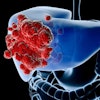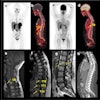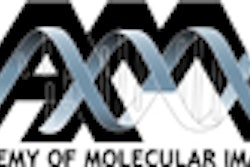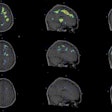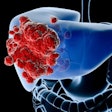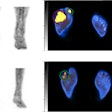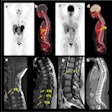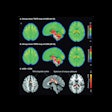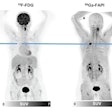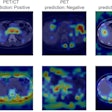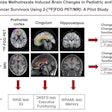PHILADELPHIA - FDG-PET appears to be very sensitive for assessing esophageal cancer at different stages, according to researchers from the Hospital of the University of Pennsylvania.
"In patients with esophageal cancer, FDG-PET imaging is an excellent technique prior to surgery (for) staging of the tumor, and (for) evaluation of recurrent and metastatic disease," said Dr. Jian Yu, who presented the study on Sunday at the 2004 Society of Nuclear Medicine meeting.
To determine the role of FDG-PET in a relatively large sample of patients with esophageal cancer, the group performed a review of 118 patients referred for the evaluation of known esophageal cancer for pre-surgery staging, for postsurgical assessment, and for follow-up purposes. The PET study results were correlated with clinical information, other imaging studies, and pathological reports.
Of the 118 patients, 101 were male and 17 were female, with a mean age of 64 years (range of 29 to 83 years). They received a total of 139 PET scans, of which 66 were for initial staging and 73 for postsurgical evaluation and follow-up.
One hundred six of the scans were positive and 33 were negative. Positive scans found primary tumor, local recurrence, and metastasis, Yu said. There were seven false-positive studies and seven false-negatives.
The FDG-PET studies produced overall sensitivity of 93% (99 of 106), specificity of 79% (26 of 33), accuracy of 90% (125 of 139), a positive predictive value of 93% (99 of 106), and a negative predictive value of 79% (26 of 33).
"In well to moderately differentiated noninvasive adenocarcinomas, FDG uptake is either normal or minimally increased," he said. The false-negative studies were found in these patients with these types of adenocarcinomas, Yu said.
In his institution's experience, FDG-PET produces many true-positive cases in this application, Yu said.
"PET scans show great contrast resolution for the positive cases," he said. "False-positive cases are usually related to inflammation."
By Erik L. Ridley
AuntMinnie.com staff writer
June 21, 2004
Related Reading
PET Medicare reimbursement -- narrow but widening, June 17, 2004
Study reveals gender, ethnicity differences in esophageal, gastric cardia cancers, May 24, 2004
Brachytherapy appears safe, effective in esophageal cancer, January 27, 2004
Radiographic barium studies reveal esophageal strictures, August 18, 2003
Copyright © 2004 AuntMinnie.com

